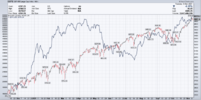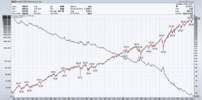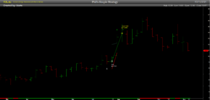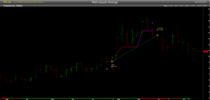- Joined
- 25 July 2021
- Posts
- 875
- Reactions
- 2,215
One of the ideas I have for my new system (still in design phase) is to also have an eject lever in the the aircraft. To set a point below all drawdown levels obtained from backtesting that defines that something has failed to such a point that the integrity of the system has failed.I think one of Mr Skate's motto/rule is of the kind of
"Do not 'play' what you can not afford to lose"
Rule number 1 indeed






